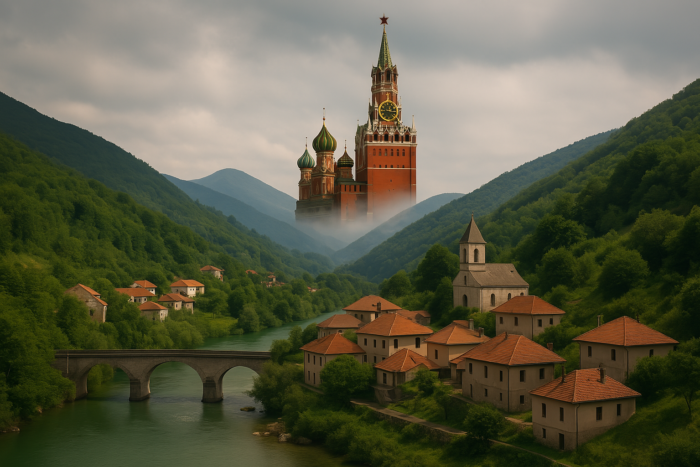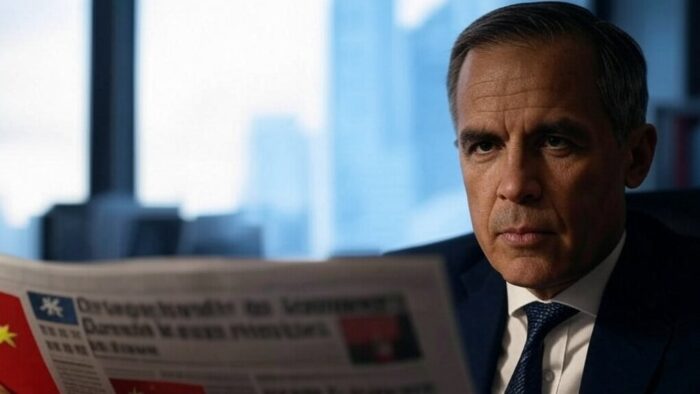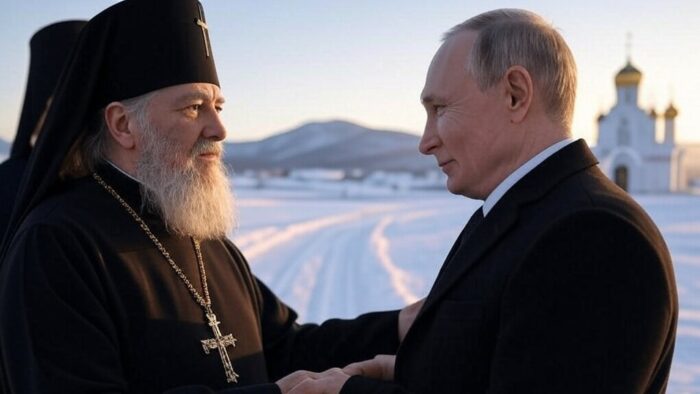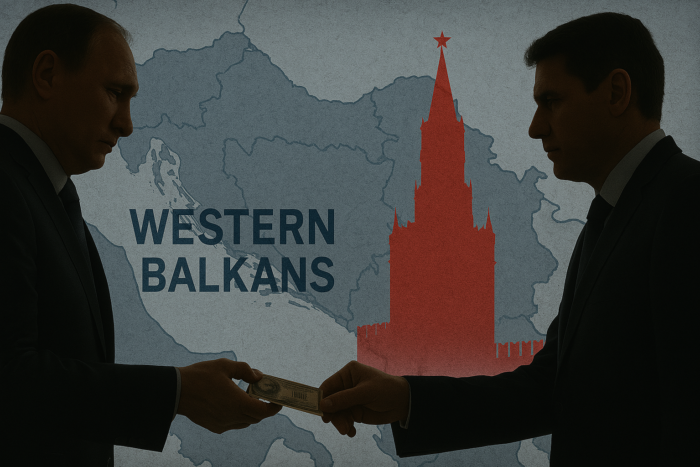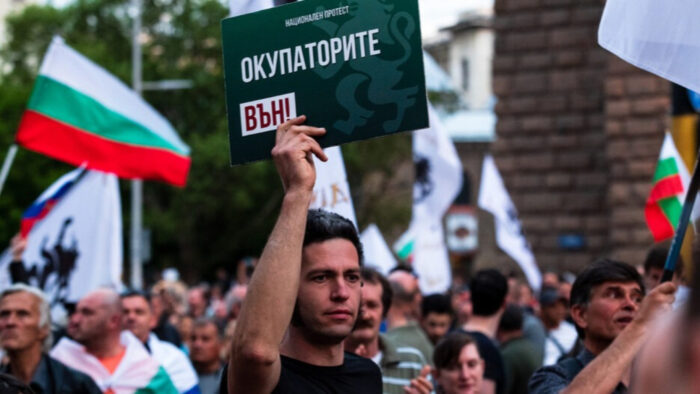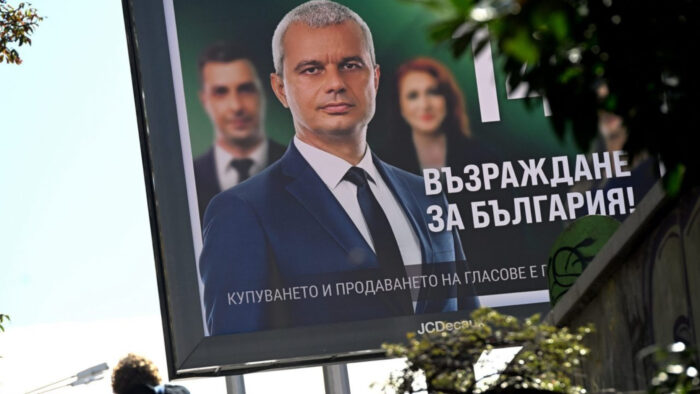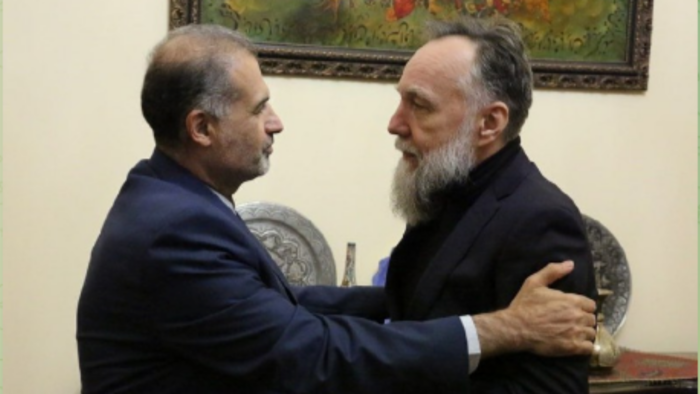On a chilly day in Moscow, March 14, 2023, a rather peculiar organization saw the light of day: The International Movement of Russophiles (IMR). Professing a deep admiration for Russian culture and a world of diverse power centers, the IMR vociferously opposes Western interference and propaganda. Yet, with its mixed bag of questionable personalities, can we truly believe in the IMR’s sincerity?
An array of figures graced the IMR’s founding congress from Russia and beyond., Among them were Russian Foreign Minister Sergey Lavrov, Kremlin’s top ideologue Alexander Dugin, American martial arts film icon Steven Seagal, Russian media oligarch Konstantin Malofeev, and Pierre de Gaulle, the grandson of the famed French general and president. The driving force behind the IMR, Bulgarian politician and alleged spy Nikolay Malinov, was also present.
The gathering attracted guests from 40 countries, spanning Europe, Asia, Africa, and even the United States. Russian President Vladimir Putin sent a warm telegram to the “budding social movement,” juxtaposing it with what he deemed “anti-Russian hysteria deliberately whipped up in many countries.” Malinov was unanimously elected as IMR Chairman at the congress.
While Malinov asserts that the IMR aims to advocate for a multipolar world that respects the traditions and sovereignty of all peoples and fosters global dialogue and collaboration among Russophiles, his background paints a different picture. He has been a vocal proponent of closer ties between Bulgaria and Russia, citing their shared Slavic and Orthodox roots. Malinov has also criticized Bulgaria’s NATO and EU memberships, labeling them as instruments of American dominance. Currently, he faces espionage charges in Bulgaria for allegedly passing state secrets to two Russian organizations in an effort to sway the Bulgarian government’s foreign policy.
Malinov’s participation in a state-run Russian TV program, “The Big Game,” adds to the concerns surrounding him. In the show, he branded those who view Russia as an aggressor as “barbarians, Russophobes, and modern fascists.” The program also featured footage from Bulgaria, where people trampled the European Union flag and flaunted “Putin is our president” t‑shirts. A map titled “Decolonizing Europe” was displayed, showcasing a divided Europe with Russia absorbing Ukraine, the Baltic republics, and Moldova.
Among the shadowy figures present at the congress was top Kremlin ideologue Alexander Dugin, who spoke of “the alternative civilization that we have to build.” Dugin has been dubbed the “high priest” of an aggressive strain of Russian nationalism that envisions Russia at the heart of a “Eurasian” empire, standing against the decadence of the West. He played a role in reviving the term “Novorossiya” or New Russia – which included Ukrainian territories – before Russia’s annexation of Crimea in 2014. It’s worth noting that Putin has used this term while declaring Crimea part of Russia.
Another intriguing character behind the IMR is Konstantin Malofeev, a Russian Orthodox activist and businessman, referred to as one of Russia’s primary “entrepreneurs of influence” in a 2021 study on hybrid warfare. Malofeev’s Tsargrad Group is on a mission to “revive the greatness of the Russian Empire.” This media tycoon funds the Tsargrad Group, an organization dedicated to resurrecting the grandeur of the Russian Empire. In 2002, leaked emails exposed Tsargrad’s support for and collaboration with extremist right-wing European politicians and activists. Not only did the group forge connections between these politicians and Aleksandr Dugin, but it also acted as a liaison between them and high-ranking Russian officials. With plans to establish the “Altintern” network, Tsargrad aimed to unite far-right parties in the European Parliament, like France’s National Rally. The US says Malofeev is closely tied to Russian aggression in Ukraine as one of the main sources of financing for the promotion of Russia-aligned separatist groups. Malofeev’s financial largesse also extends to backing anti-abortion and anti-LGBTIQ initiatives in Europe.
Steven Seagal, the once-iconic action star, is the most recognizable face of the IMR. Embracing Russian citizenship in 2016, Seagal openly admired Putin’s leadership. Appointed as a special envoy for humanitarian relations between Russia and Japan in 2018, he claimed to be “one million percent” Russian after receiving an Order of Friendship medal from Putin in February 2023. However, Seagal’s career has been marred by allegations of sexual misconduct and his support for Russia’s annexation of Crimea, which has led to his being banned from entering Ukraine. Seagal railed against the U.S. government for allegedly investing billions in undermining Russia’s morale. Seagal’s bold claim:
“Over half of the people in America actually love Russia and love Russians and know that they’re being lied to.”
The IMR has announced ambitious plans to launch a European Citizens’ Initiative (ECI) aiming to lift EU sanctions against Russia, which were imposed following the annexation of Crimea and interference in eastern Ukraine. The organization also intends to host various cultural events, conferences, seminars, exhibitions, and festivals to showcase the richness of Russian history, literature, art, music, religion, science, technology, and spirituality worldwide. As the IMR’s role as a Russian influence operation becomes increasingly apparent, one must wonder just how successful their endeavors will be. Stay tuned as we keep you updated.
References:
https://russkiymir.ru/en/news/311298 /
https://russkiymir.ru/en/publications/311418/
https://edition.cnn.com/2022/08/21/europe/alexander-dugin-russia-profile-intl/index.html
https://www.justice.gov/opa/pr/russian-oligarch-charged-violating-us-sanctions

